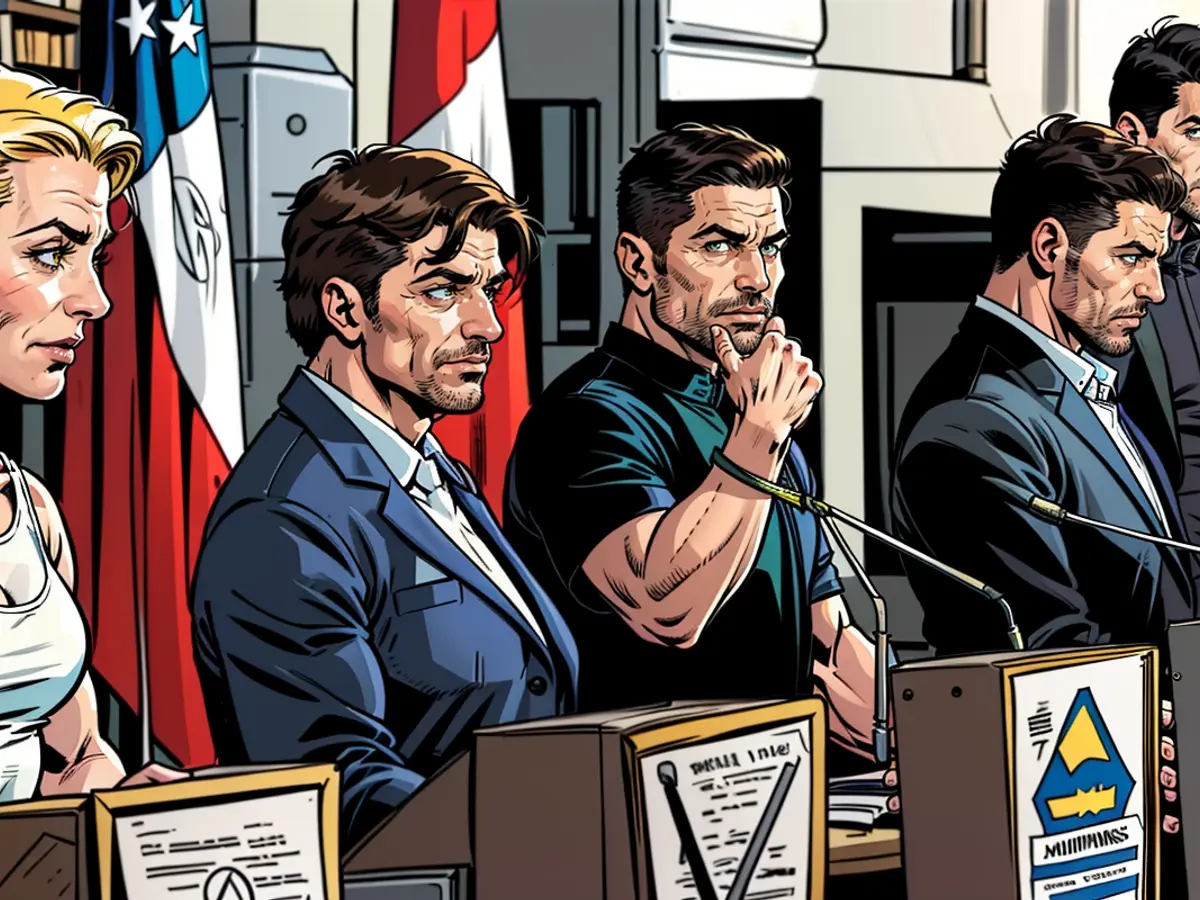Kyiv's Leader: Troop Withdrawal by Moscow Paves Way for Tomorrow's Negotiations
A united agreement from all states involved is preferable, but 80 states, including Switzerland, agreed upon the final declaration of the peace conference. Following the Switzerland summit, President Zelenskyy proposed negotiation conditions, emphasizing the withdrawal of Russian troops from Ukraine as a prerequisite.
At the conference's conclusion, President Volodymyr Zelenskyy mentioned a Russian troop withdrawal as a requirement for peace talks. "Russia can initiate negotiations tomorrow without preconditions if it withdraws from our legally-owned territories," he stated to the media. He further noted that Russia and its leadership are not prepared for a fair peace.
The final declaration of the peace conference had not been previously endorsed by all attendees. Out of 93 states, 80 agreed, according to the Swiss hosts' list. Notable absentees inclusion six G20 countries: Brazil, Mexico, Saudi Arabia, South Africa, India, and Indonesia, as well as Armenia, Bahrain, Thailand, Libya, and the United Arab Emirates, Colombia, and the Vatican. Turkey, which attempted mediation between Ukraine and Russia, participated along with other signatories.
The closing declaration emphasized the UN Charter and respect for territorial integrity and sovereignty as the basis for "a comprehensive, just, and lasting peace in Ukraine." Many countries supported the demand for a complete exchange of captured soldiers and the return of Ukrainian children who were forcibly taken. The conference also discussed the importance of maintaining food security and avoiding militarization. Another significant topic was preventing a nuclear disaster from the ongoing war near the Zaporizhzhia Nuclear Power Plant, as well as regaining Ukraine's control over the AKW.
Amherd: Diplomacy can pave the way
Zelenskyy expressed optimism about "the first strides towards peace" made at the conference. The document could be signed by all those supporting the UN Charter.
Swiss Federal President Viola Amherd acknowledged the diverse perspectives and starting positions. However, this was the first time a high-level and broad-based conference discussed a peace process. They established some fundamental conditions for ending the Ukraine war. Amherd believes diplomacy, through persistence, can achieve such progress.
Zelenskyj plans to hold another conference soon.
EU Commission President Ursula von der Leyen considered the conference fittingly titled "Path to Peace." She argued that peace would not be achieved overnight. It is not about negotiation, as Russian President Vladimir Putin has no genuine intention to end the conflict. He demands surrender, takes control of Ukrainian territory, disarms Ukraine, and makes it vulnerable. Such conditions cannot be agreed upon.
The Ukrainian president agreed with similar sentiments, suggesting another meeting soon. Preparations would take months rather than years, Zelenskyj stated. Several countries have already expressed readiness to host such a summit. A prerequisite for Russian participation is Moscow's acknowledgment of the UN Charter, von der Leyen added. The closing statement does not mention a follow-up conference.
Experts consider the conference's impact minimal, as Russia was not invited. The summit aimed to redirect international attention towards the Ukraine war, following other global conflicts and elections distracting attention from it.
Read also:
- EU Commission President Ursula von der Leyen noted that Russia, led by President Vladimir Putin, has shown no genuine intention to end the conflict in Ukraine and cannot be expected to agree to conditions such as the withdrawal of Russian troops and the return of occupied territories.
- During the peace talks, Ukrainian President Volodymyr Selenskyy emphasized the necessity of Russia withdrawing its troops from Ukraine as a prerequisite for any negotiation, stating that Russia could initiate talks without preconditions the following day if it withdrew from its illegally occupied territories.
- Amidst the peace negotiations, Ursula von der Leyen, as well as Volodymyr Selenskyy, highlighted the importance of Switzerland's role in hosting the conference and its support for the UN Charter's principles, including respect for territorial integrity and sovereignty, which form the basis for a comprehensive, just, and lasting peace in Ukraine.








